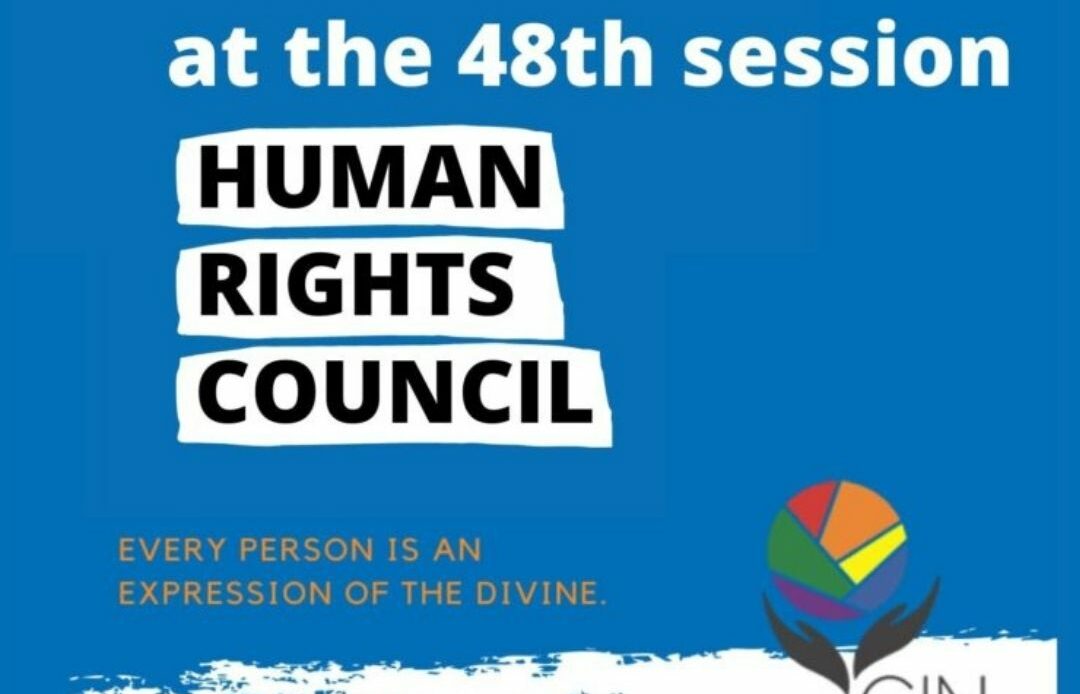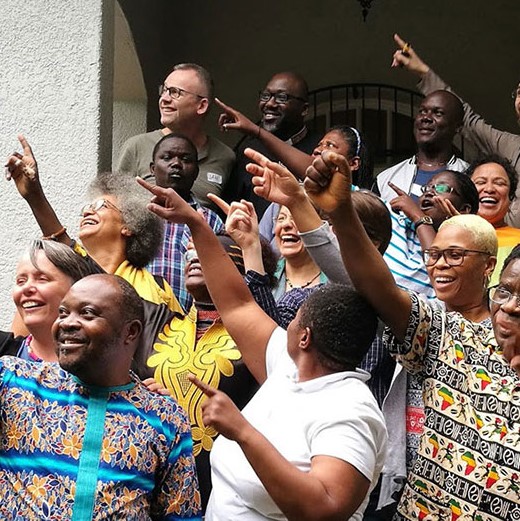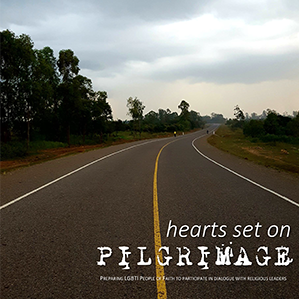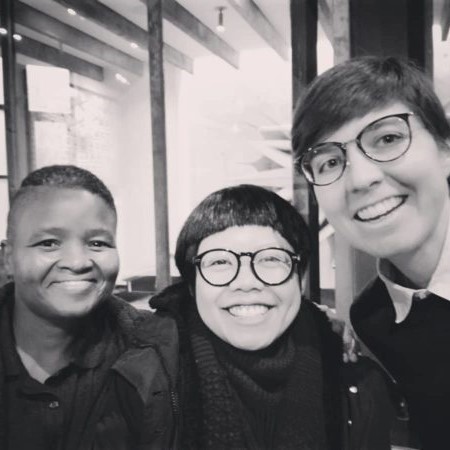As we know, the most heard and influential voices of faith in UN fora have been conservative, anti-rights voices that are using religious perspectives in their agenda to fight human rights progress. In order to disrupt these narratives, GIN continued to introduce into these spaces the voices of people of faith with diverse sexual orientation, gender identity, expression and sex characteristics (SOGIESC) from the Global South and East. In doing so, our goal was to undercut the assumptions that SOGIESC diversity is a Western imposition, as well as that SOGIESC diverse people are in opposition to faith.
This engagement connected different activities at the Human Rights Council (HRC) sessions throughout the year that are complementary to each other such as organizing side events, making interventions during interactive dialogues with Special Rapporteurs, providing written inputs to different UN mechanisms, and of course supporting our partners and allies with a shared vision.
To be more detailed, we organized and also supported other side events. For instance, side events on “Using Faith and Tradition to support an inclusive understanding of Gender and Sexuality” and “Reclaiming Family Values” featured stories and projects from around the world celebrating diversity, love, and inclusion. The latter was also an opportunity for us to launch an extensive report titled “Reclaiming Families and Traditional Values”. In these side events, we centered the voices of marginalized people, predominantly from the Global South and East, who represent pre-colonial cultural and contemporary religious traditions and contexts that are inclusive and affirming of broader understandings of gender and sexuality. These conversations have been broadcasted to the international community, including governments, UN agencies, civil society organizations, and faith leaders.
During the side event called “An epidemic of violence; Defending the lives of Transgender Women”, we discussed issues of transgender women given the global epidemic of violence against them, elaborated on the fact that denial of opportunity and intersecting vulnerabilities compound to create a culture of violence, and provided ways to directly make societies safer places for transgender persons. The side event “Rights at Risk: Time for Action” was a space for having a dialogue on rights related to gender and sexuality in human rights systems. For instance, we explored strategies helping to strengthen a resilient collective resistance and provided a guide to actions to help to overturn anti-right actors’ persistent co-optation of faith and tradition.
Furthermore, GIN had a very strong presence at the HRC sessions. For instance, our advocacy team was present during the 11 interactive dialogues with UN Special Procedures on rights of indigenous peoples, rights of elderly people, racism, sexual orientation and gender identity, extreme poverty, discrimination against women, cultural rights, freedom of religion or belief, and minority issues along with OHCHR report on States response to the pandemic.
Interrelatedly, our team significantly contributed to calls of UN special procedures as well as treaty bodies. To name only a few of our contributions, a written submission to the Committee on the Elimination of Discrimination against Women emphasized the importance of understanding converging colonial influences and religion that impact the lives of LBT women and girls coming from indigenous communities across the globe. The submission also supported ILGA World’s contribution to the Committee and was used to create the joint statement which was delivered on behalf of GIN and ILGA world during the general discussion day organized by the Committee.
GIN also strives to foster collaborative work with UN experts and this year we continued to strengthen the existing engagement with mandate holders and build new strategic partnerships. For instance, we had the opportunity to work with Ms. Reem Alsalem, Special Rapporteur on violence against women, its causes and consequences, Mr. Ahmed Shaheed, Special Rapporteur on freedom of religion or belief, Victor Madrigal-Borloz, UN Independent Expert on violence and discrimination based on sexual orientation and gender identity.





